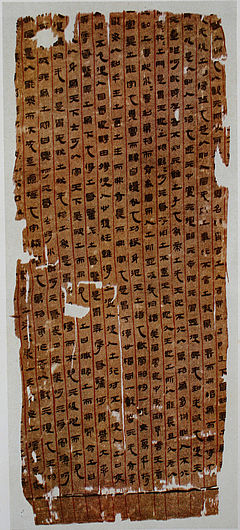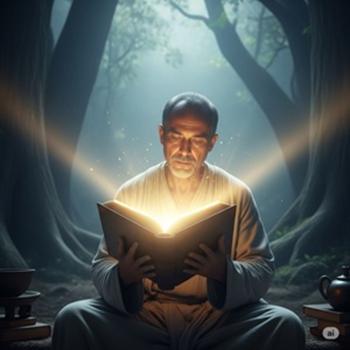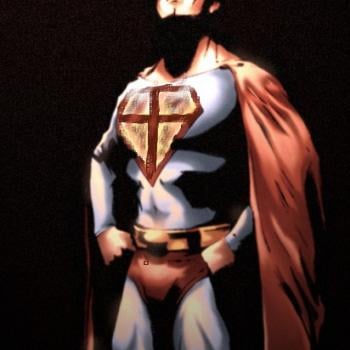
I was raised up in a church that taught everyone went to hell before Christ came to this Earth and died on a cross. How can we deny that ancient cultures also knew the one true and living God that Christianity claims? Before Christ was revealed in his fleshly form on Earth, as God he was unfolding and revealing himself to others. Consider that Abraham was before Christ came to Earth and the scriptures declare that his faith was counted as righteousness in many places in the scriptures such as Genesis 15:6, Romans 4:1-22, Galatians 3:6-9, Hebrews 11:8-10, Hebrews 11:17-19. If this was true for Abraham why couldn’t it be true for other cultures?
Please don’t think that I am trying to prove religious syncretism. All religions most certainly cannot be fused together and all religions are not right. That is not what I am trying to do as I write this article. Rather what I am trying to make the case for is an unfolding of wisdom and truth through time. I believe ancient peoples saw foreshadowings and glimpses that aligned with the Christ to come. The commonality of those who believed in One God cannot be ignored.
As Hieromonk Damascene puts it so eloquently, “If we concede that the pre-Christian philosophers did seek the truth, and that they did catch glimpses of it, it only stands to reason that their teachings should bear similarities, like a broken reflection of the moon in water, to the fulness of Truth in Jesus Christ. Therefore, these similarities need not appear as a threat to Christianity; instead, they offer one more proof of Christ as universal Truth.”

For the sake of this article, I want to consider the teachings of Lao Tzu and Hiraclitus. In my book God B.C. I consider the similarities of the teachings of Christ and the Apostles among the Native Americans, Chinese and Greek philosophers also. I cannot escape the similarities of the teachings of Christ and Lao Tzu in the Tao Teh Ching. The similarities are staggering. These writings are estimated to date back as far as 4 BC. When reading it it is easy to catch a glimpse, a poetic spirit of Christ. It is pure, thought and reminds one of something Christ would say.
“Before the universe was born there was something in the chaos of the heavens. It stands alone and empty, solitary and unchanging. It is ever-present and secure. It may be regarded as the Mother of the Universe. Because I do not know its name, I call it the Tao. If forced to give it a name, I would call it ‘Great’. Because it is Great means it is everywhere. Being everywhere means it is eternal. Being eternal means everything returns to it. Tao is great. Heaven is great. Earth is great. Humanity is great. Within the universe, these are the four great things. Humanity follows the earth. Earth follows Heaven. Heaven follows the Tao. The Tao follows only itself.”—Tao Teh Ching Stanza 25
—————————————————————-
The Tao is nameless and unchanging. Although it appears insignificant, nothing in the world can contain it. If a ruler abides by its principles, then her people will willingly follow. Heaven would then reign on earth, like sweet rain falling on paradise. People would have no need for laws because the law would be written on their hearts.—-Tao Teh Ching Stanza 32
(Compare to Hebrews 10:16-17 “This is the covenant that I will make with them after those days, saith the Lord, I will put my laws into their hearts, and in their minds will I write them; And their sins and iniquities will I remember no more.”)
When read with an open mind there are definite similarities. Even the western spiritual seeker can benefit from it and learn the basics of spiritual life from the Tao Teh Ching which the churches fail to teach like how to be free from compulsive thinking and acquire stillness of thoughts and how to cut off desires and addictions and how to conquer negative emotions. Tao literally translates ‘The Way’. Jesus called himself ‘The Way’ (John 14:6). The early church called themselves ‘The Way’ (Acts 9:1; 18:25-26; 19:9, 23; 22:4; 24:14, 22). The Greek word, Logos also translates ‘The Way’ or ‘The Word’. Logos is the word used in John 1:1-5 where John says
“In the beginning was the Word, and the Word was with God, and the Word was God. The same was in the beginning with God. All things were made by him; and without him was not anything made that was made. In him was life; and the life was the light of men. And the light shineth in darkness; and the darkness comprehended it not.”
Compare this to the opening of the Tao Teh Ching:
“The Tao that can be trodden is not the enduring and unchanging Tao. The name that can be named is not the enduring and unchanging name. (Conceived of as) having no name, it is the Originator of heaven and earth; (conceived of as) having a name, it is the Mother of all things.”
I believe, Lao Tzu was able to sense the presence of Christ in creation, as were many of the truth seekers of ancient times. If modern man would learn rather than react to words and ideas programmed into us by the Western mindset we would return to this simplicity of innocence and direct intuition to truly receive the true message of Christ. Only in doing so will we truly see the undistorted image of Christ. This simplicity is evident among many cultures prior to Christ. This is the basis of what I am trying to communicate through this writing and in my book God B.C.
Lao Tzu described this same Logos as The Way, Path or Pattern of Heaven and the Course that things follow. He said it was The Way that “nourishes, develops, cares for, shelters, comforts and protects”.
And in John chapter 1 we read about the fulfillment of this Logos in Christ, previously quoted but now insert the word Logos as in the original and literal Greek interpretation of these scriptures:
“In the beginning was the Logos,
And the Logos was with God,
And the Logos was God.
The same was in the beginning with God.
All things were made by Him;
And without Him was not anything made that was made.
In Him was life and the life was the light of men.
And the light shines in the darkness,
And the darkness comprehended it not…
He was in the world and the world was made by Him.
And the world knew him not…
And the Logos became flesh,
And dwelt among us,
And we beheld His glory.
This was the same Logos Heraclitus and the Tao that Lao Tzu spoke of. To them it was a mystery hidden in riddles but John brought it into reality “was made flesh and dwelt among us”. John and the apostles saw Him and beheld his glory and heard the words that proceeded from his mouth. Lao Tzu and Heraclitus knew through intuition as I believe many ancient cultures did. In Christ, we experience it in a tangible way.
“The soul is dyed the color of its thoughts. Think only on those things that are in line with your principles and can bear the light of day. The content of your character is your choice. Day by day, what you choose, what you think, and what you do is who you become. Your integrity is your destiny … it is the light that guides your way.”
(Consider similarities to Proverbs 23:7 “For as he thinketh in his heart, so is he.”)—Heraclitus
————————————————————————–
Quotes by Lao Tzu
“Simplicity, patience, compassion.
These three are your greatest treasures.
Simple in actions and thoughts, you return to the source of being.
Patient with both friends and enemies,
you accord with the way things are.
Compassionate toward yourself,
you reconcile all beings in the world.”
“Life is a series of natural and spontaneous changes. Don’t resist them; that only creates sorrow. Let reality be reality. Let things flow naturally forward in whatever way they like.” (Consider similarity to Proverbs 3:5-6 “Trust in the Lord with all thine heart; and lean not unto thine own understanding. In all thy ways acknowledge him, and he shall direct thy paths.”)
“A man with outward courage dares to die; a man with inner courage dares to live.”
“Be content with what you have;
rejoice in the way things are.
When you realize there is nothing lacking,
the whole world belongs to you.”
(Consider similarities to Phillipians 4:11 “I have learned, in whatsoever state I am, therewith to be content.”)
————————————————————————–
“Our path to a true experience of Christ is often long and arduous. We in the modern West have become too sophisticated, too complex. When people talk to us of Christianity, we’ve heard it all before: we’ve already become conditioned to react in certain ways to Christian words and concepts. The reflexes they evoke in us are sometimes connected with an emotional trauma from the past that causes us to either cling to them or rebel against them. Clinging and rebellion are only two sides of the same coin: both are predicated on emotional involvement in words and concepts which claim to be reality itself but are not.” —Hieromonk Damascene
————————————————————————–
In conclusion, consider that Apostle Paul declared in 1 Corinthians 13:12 that even we “see through a glass darkly”. I believe this is also what the ancients were experiencing even more so but did the best they could to understand and seek the truth from the one and only living God. Even they recognized and acknowledged there were not many gods but one uncreated creator of the universe omniscient, omnipresent, eternal and infinite. And as God promised in the holy scriptures in
Proverbs 8:17 “I love them that love me; and those that seek me early shall find me.”
Jeremiah 29:13 “You will seek me and find me when you seek me with all your heart.”
Luke 11:9 “And I tell you, ask, and it will be given to you; seek, and you will find…”
James 4:8 “Draw near to God, and he will draw near to you.”
Yes, now that Christ has come he declares that salvation is of and through him but to say that no one knew him before Christianity is ludicrous.
 I consider this subject in detail in my book God B.C. Before Christianity. I also discuss Christ’s appearance in the Old Testament and to Native Americans as well as many of the Greek philosophers in my book.
I consider this subject in detail in my book God B.C. Before Christianity. I also discuss Christ’s appearance in the Old Testament and to Native Americans as well as many of the Greek philosophers in my book.













